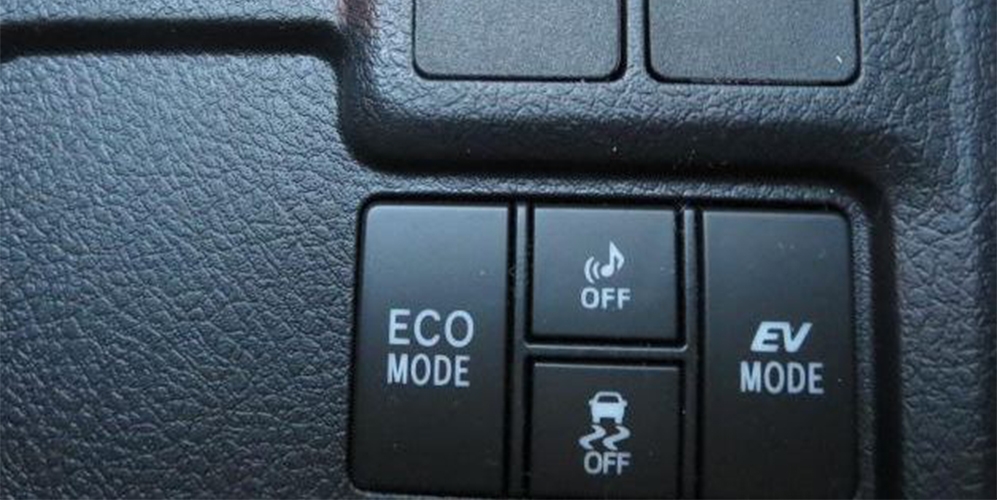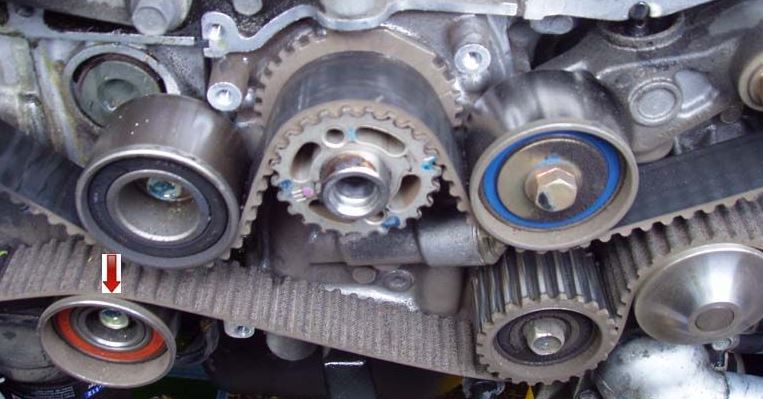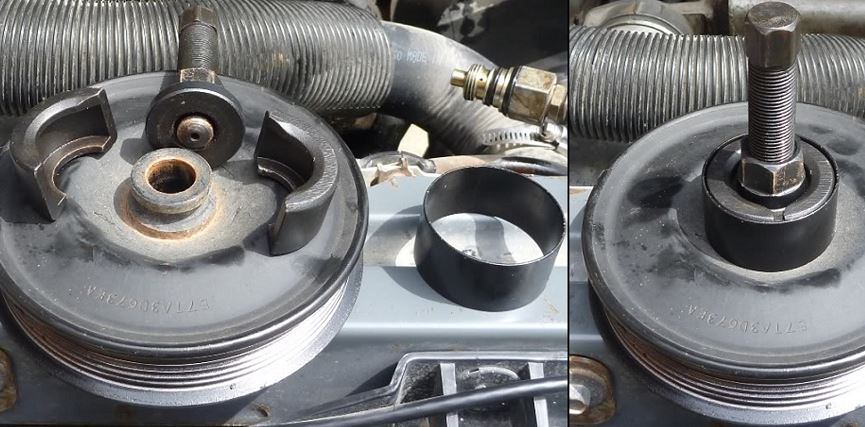Last updated on January 13th, 2023 at 08:34 pm
There is no definite automobile maintenance or repair schedule here. Therefore your air conditioner does not need to be recharged regularly. In this post, we will look at how often you should recharge your car AC and we getting right to it but before you may also love this earlier post (Does AC Affect Engine Power) if you are reading this now.
How often does car AC need to be recharged?
After some research and personal experience, I have concluded that the most effective time is when you just serviced your vehicle. So be sure to check the air conditioning whenever you get your automobile serviced. But, first, you will need to get your air conditioning equipment serviced if there is a problem.
Your air conditioning system does not need to be recharged every year or even every two years. However, when the system starts to cool less than it used to, but before it quits entirely, this is the greatest sign that it needs to be recharged.
Related Article:
- Why Does My Car Lose Power with the AC On
- Overcharged Ac System Gauge Readings
- Prius Fuel Gauge Reading Incorrectly
Highlights of this article:
- How often does car AC need to be recharged
- Signs that your car AC needs to be recharged
- symptoms of undercharged car ac
- symptoms of overcharged car ac
When you take your automobile to a workshop for an AC recharge, the technician will usually begin by using his gauges to check system pressures. He may immediately begin checking for leaks if the system is only a bit low.
In summary…
If the system is too low or empty, the refrigerant must be injected to find the leak. Then when the technician discovers the cause of the issue(leak), he’ll have to empty the AC system and remedy it before recharging it.
Keynote:
A thorough AC recharge entails removing the old refrigerant and replacing it. Consequently, the technician won’t be able to tell if the proper quantity is on board. There is an additional stage if the system has been opened or any components have been altered.
Before charging the system, they’ll have to vacuum it of any ambient air and moisture. All of this takes a few hours, far longer than just draining a can of refrigerant and leaving it alone.
Signs that your car AC needs to be recharged
Your car’s air conditioning will not work correctly if the Freon level decreases for whatever the purpose is. Because the Compressor cannot pressurize due to a lack of Freon, the AC clutch will not activate, and some other functions will begin to malfunction.
Signs that your car AC needs to be recharged:
· Leakage
· Clutch not Engaging
· Low Gauge Readings
· AC Is Not Blowing Cold Air
Again, however, this is a less visible symptom. But, the best part is that your vehicle will show signs of low refrigerant. So, without any further delay, let’s get right into the signs you need to watch out for.
1. Leakage
The first sign is leakage; it can be discovered in many different ways. For example, low Freon in your automobile might cause a malfunction of your AC. When dealing with AC’s, it is a typical symptom.
Check for leakage with these easy steps:
- Examine the Compressor’s pressure lines, service ports, front shaft, accumulator, condenser, and fittings.
- You may have a Freon leak if you see a coating or a stream of liquid on these parts.
- To wrap up the process, remove this film-like substance, and if it reappears, you have a Freon leak, and your car’s Freon levels are low.
One of Freon’s core functions is to help lubricate the Compressor; thus, it resembles grease but is lighter when liquid. So all you need to do is check the various components of your car’s air conditioning system if you suspect a Freon leak.
Note:
Reduction of cooling temperature may also occur in some rare cases from your car’s AC vents. This usually happens while driving. What this suggests is that a part of the pressurized Freon has leaked from the seals. The origin of the leak might be from either the hoses or the fittings in some cars. Watch out for a white cloud-like emission coming from the place where the leak is occurring.
2. Clutch not Engaging
The A/C clutch pressurizes the Compressor in your automobile. When you switch on your car’s air conditioning, you should hear a clicking sound. When the AC clutch engages, such sound is produced.
Your A/C clutch can detect the amount of Freon in the care system. When it doesn’t engage, it’s a sign that the Freon level is too low. It’s also a sign that the Compressor can’t compress the vehicle refrigerant because it’s too low.
3. Low Gauge Readings
Obtaining the car’s AC pressure measurements is one way to monitor freon levels in an automobile. After you’ve learned how to use gauges to monitor Freon levels in a car, you’ll be successful in accomplishing this.
What can you do about it?
Begin by connecting the high and low service ports of an AC manifold gauge. Next, click the red gauge hose to the high-side service port with a quick-release fitting to ensure that the meter is fitted correctly.
Make that the blue gauge hose is attached to the low-side service port. Turn on the red and blue gauge dials when the car’s motor and air conditioning are turned off to receive the correct readings.
4. AC Is Not Blowing Cold Air
This symptom is the most apparent sign; it is usually noticed first. If warm air flows out of the in-cabin vents, your car’s A/C system needs to be recharged. Because the technique functions by circulating pressurized refrigerant, a decreased refrigerant level will impact its performance.
A working automobile air conditioner with proper Freon levels will blast cold or hot air depending on the setting.
Note:
When the AC blows warm or hot air when you set it to blow cold air, this is one of the more visible indicators that the Freon levels in your automobile are low. The result usually happens when there isn’t enough Freon to build pressure and circulate the air conditioning system.
Symptoms of undercharged car AC
How can you tell if the air conditioning in your car is undercharged? Freon is constantly circulated via the pressure in air conditioning systems.
These pressurized systems, like any mechanical system, degrade with time. In some instances, the pressure and Freon levels in the air conditioning system are too low. As a result, the performance of your vehicle’s air conditioning system will suffer.
Listed below are a few telltale indicators that your car’s air conditioner is undercharged.
- It’s blowing air that’s at room temperature.
- Total collapse and cooling capacity loss
- Ice on the Compressor: This occurs when moisture in the system takes its place and begins to freeze.
- Liquid Moving in an Uncertain State Low refrigerant levels will result in bubbles or a blurred look.
- When there is a strange odour coming from your car vents, there could be a leak in the air conditioning system that has to be addressed.
Symptoms of overcharged car AC
Several factors can cause an overcharged air conditioner. The most typical reason, though, is an inexperienced mechanic topping off your car’s refrigerant in excess.
The symptoms include the following;
1. Noises from the Compressor:
If your Air conditioning is overcharged, the compressors need to work significantly harder to push all coolants through the system’s pipes.
Keep in mind that your air conditioner functions by compressing a liquid and then releasing it as a gas, which is then converted again to a drink. If your Compressor is overloaded, it can’t decompress from liquid to gas. Thus it squirts out refrigerant rather than gas coolant.
2. High-Pressure Reading:
The cooling system contains a pressure gauge, and when the system is overfilled, the pressure gauge will indicate that something is amiss.
An overcharged air conditioner will have more significant pressures and temperatures than usual. Your Compressor will be unable to handle this volume of coolant, causing the pressure to rise, and the temperature will also increase accordingly.
3. It puts pressure on your engine:
The air conditioner usually requires a lot of electricity to function. So in the event of a malfunction happening, things are very likely to go into overdrive.
Suppose your air conditioner has been overcharged, and the Compressor is now trying to squeeze a massive volume of liquid coolant through that tiny nozzle. In that case, it will begin to consume too much electricity.
Components like the Compressor’s drive belt may slip off due to the high power demand, leading to a belt rupture. Alternatively, the belt might get stuck and drain the vehicle’s power.
Final Note:
Adding too much to the system will cause the air conditioner to get overcharged. The best thing to do when an air conditioner becomes overcharged is to visit a workshop with professionals.
However, if hiring a professional for a pricey and inconvenient repair isn’t an option, another alternative is to learn how to discharge air units at home.
What to Read Next:

Hi dear, I am Dennis Gift, an autobody repair technician with over 4 years of experience; and I love everything about fitness and cars and researching and sharing my experience. And this is where I get to do that freely without reservations. So come along with me.




